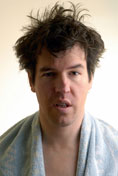Cures for Insomnia

There are a variety of traditional and alternative cures for insomnia. The key is to determine which remedy can effectively address your individual needs so you can return to getting the sleep you need night after night.
For an insomnia remedy to work, it has to address the actual cause of the condition - and not just the symptoms. Insomnia is a complex disorder that is categorized as one of two types.
- Primary Insomnia - when insomnia itself is the disorder, rather than a symptom caused by another medical condition.
- Secondary Insomnia - when your insomnia is due to another condition, such as chronic pain or breathing problems.
Insomnia can be further divided according to the duration of the problem.
- Transient insomnia lasts from 1 to 7 nights.
- Short-term insomnia is present from a week to a month in duration.
- Chronic insomnia, persists for a month or longer.
Because of the range of available insomnia cures, it's important to see your doctor, get an accurate diagnosis, and discuss treatment options before you try any remedies on your own. Following are some cures for insomnia that your doctor may discuss with you.
Treatment Approaches and Options
Transient or Short-term Insomnia. To examine the cause of your sleeplessness, consider the implications of recent life events, work schedules, social obligations, and commitments. The mental and physical burdens of what you are dealing with may be taking a toll on your ability to sleep.
If this is the case, consider making changes in your day-to-day activities, if possible. Examine your diet to ensure you are eating healthy, balanced meals and avoid alcohol and caffeine. Take an objective look at your sleep habits and make positive changes that will help facilitate sleep. For information, click here: healthy sleep habits.
Ask your doctor if any medications you are taking may be getting in the way of your ability to sleep. Also consider some natural approaches that include relaxation techniques, making changes to your bedroom, trying herbal teas, and/or aromatherapy. Taking an over-the-counter sleep aids may help, but should be used only on the advice of your doctor.
Chronic Insomnia. For long-term insomnia that can lead to serious health issues, you need to take stronger measures. A total re-vamping of your sleep habits, sleep environment, diet and lifestyle (called sleep hygiene) may be necessary, and a complete physical exam by your doctor is a must.
You may find that your sleep deprivation is due to an underlying medical condition, such as sleep apnea, diabetes, or heart disease. If this is the case, your doctor will identify a comprehensive treatment approach that addresses your medical needs, as well as your insomnia.
If your sleeplessness is diagnosed as being primary insomnia, recommended treatments may include the aforementioned relaxation techniques, natural remedies like Melatonin, and aromatherapy, as well as the addition of cognitive behavioral therapy, prescription drugs, or doctor-recommended over-the-counter insomnia medications.
Cures for Insomnia - Secondary Cases
If you're suffering from secondary insomnia, the cures for insomnia listed above may not help as much. But, they may be used concurrently with treatment for your underlying medical problem.
A major cause of secondary insomnia is pain - either from an acute illness or injury or as a result of chronic disease such as arthritis or cancer. When this happens, treating the pain will also help address the resulting sleeplessness.
Sometimes breathing difficulties, caused by a condition such as asthma, can disrupt your sleep. Or maybe excessively high stress levels, anxiety or depression, or acid reflux disease may be the source that's causing you sleepless nights.
When you treat these underlying medical conditions, you're treating your insomnia too. That's why visiting your doctor should be your first move. Studies show that a huge percentage of insomnia sufferers never seek professional treatment. Instead, they struggle along in a fog and often resort to self-medicating, which can be dangerous to their long-term health.
Therefore, do your research, talk to your doctor, and follow his or her treatment recommendations for the best possible outcomes.
Related Information - Cures for Insomnia
What Is Insomnia?
Facts About Insomnia
Insomnia Statistics
'Test Yourself' Insomnia Test
Causes Of Insomnia
Tips and More on Cures for Insomnia
Insomnia Medications
Natural Sleep Aids
OTC Sleep Aids
Sleep Hygiene
Share Sleep Tips Do you have a great tip to share with others who are struggling with sleep? What works for you might help someone else. |



